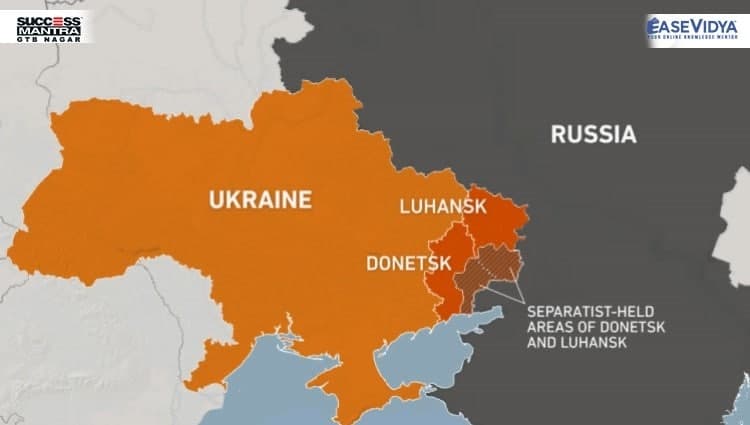
UKRAINE RUSSIA CONFLICT
UKRAINE RUSSIA CONFLICT
Russia has sought immediate talks to secure clear legal agreements that Nato will not expand eastwards. This was conveyed by Russian President Vladimir Putin to UK Prime Minister Boris Johnson. This came a day after G7 Foreign Ministers and EU representatives issued a statement condemning Russia’s military build-up and aggressive rhetoric towards Ukraine. A build-up of Russian military troops along Ukraine and Russia’s shared 1,200-mile border has raised the tensions in the area. Ukraine and Russia share hundreds of years of cultural, linguistic and familial links. As part of the Soviet Union, Ukraine was the second-most powerful Soviet republic after Russia, and was crucial strategically, economically and culturally. Ever since Ukraine split from the Soviet Union, both Russia and the West have vied for greater influence in the country in order to keep the balance of power in the region in their favour.
North Atlantic Treaty Organisation
- It is an intergovernmental military alliance.
- Established by Washington treaty.
- Treaty that was signed on 4 April 1949.
- Headquarters — Brussels, Belgium.
- Headquarters of Allied Command Operations — Mons, Belgium.
Demands Of Russia
- Russia stated that only if NATO withdrew their forces from all countries in Europe that joined the alliance after May 1997, would they de-escalate the military build-up.
- This would effectively mean that NATO cannot operate in any of the Baltic nations that border Russia (Latvia, Estonia, Lithuania), central European states such as Poland, Hungary, and the Czech republic, and Balkan states such as Croatia and Slovenia.
- Russia also wants NATO to drop plans of any further ‘enlargement’, which means committing to not accepting Ukraine and Georgia as members. Another demand is that NATO must not hold drills in eastern Europe, Ukraine and Georgia without prior approval from Russia.
Conflict all about:
Tensions between Ukraine and Russia, both former Soviet states, escalated in late 2013 over a landmark political and trade deal with the European Union. After the pro-Russian then-President, Viktor Yanukovych, suspended the talks, weeks of protests in Kiev erupted into violence.
- Then, in March 2014, Russia annexed Crimea, an autonomous peninsula in southern Ukraine with strong Russian loyalties, on the pretext that it was defending its interests and those of Russian-speaking citizens.
- Shortly afterwards, pro-Russian separatists in Ukraine’s Donetsk and Luhansk regions declared their independence from Kiev, prompting months of heavy fighting. Despite Kiev and Moscow signing a peace deal in Minsk in 2015, brokered by France and Germany, there have been repeated ceasefire violations.
Response from the west:
- The U.S and NATO officials have bluntly stated that Russia’s proposals are unrealistic. They insist that Ukraine and every other country has the right to determine its own foreign policy.
- Citing the principle of sovereignty, they insist that Ukraine, and every other country in eastern Europe, has the right to determine its foreign policy without outside interference and join whichever alliance it wants.
- They have also dismissed the idea of Russia wielding veto power over who gets to become a member of NATO, and pointed out that NATO would not take decisions affecting eastern Europe without involving the countries concerned.












0 Comment